Corby Castle in Cumbria is a true rarity: a Grade I-listed masterpiece that is on the market for the first time in a generation. Penny Churchill takes a look.
Historic, Grade I-listed Corby Castle stands at the heart of an immaculate, 711-acre estate bounded by the picturesque villages of Great Corby and Wetheral in Cumbria’s north-east corner.
The majestic River Eden forms the western and southern boundary, with woodland to the north and east, while the border city of Carlisle is six miles away to the west. This extraordinary property, one of Britain’s greatest private residential and sporting estates, is for sale at £15 million through Savills.

Corby Castle’s interiors are every bit as grand as its façade promises.
According to its Historic England listing, the Manor of Corby was granted to Hubert de Vallibus by Henry II and passed to Andrew de Harcia, Earl of Carlisle, before being given to Sir Richard Salkeld by Edward III in 1336.
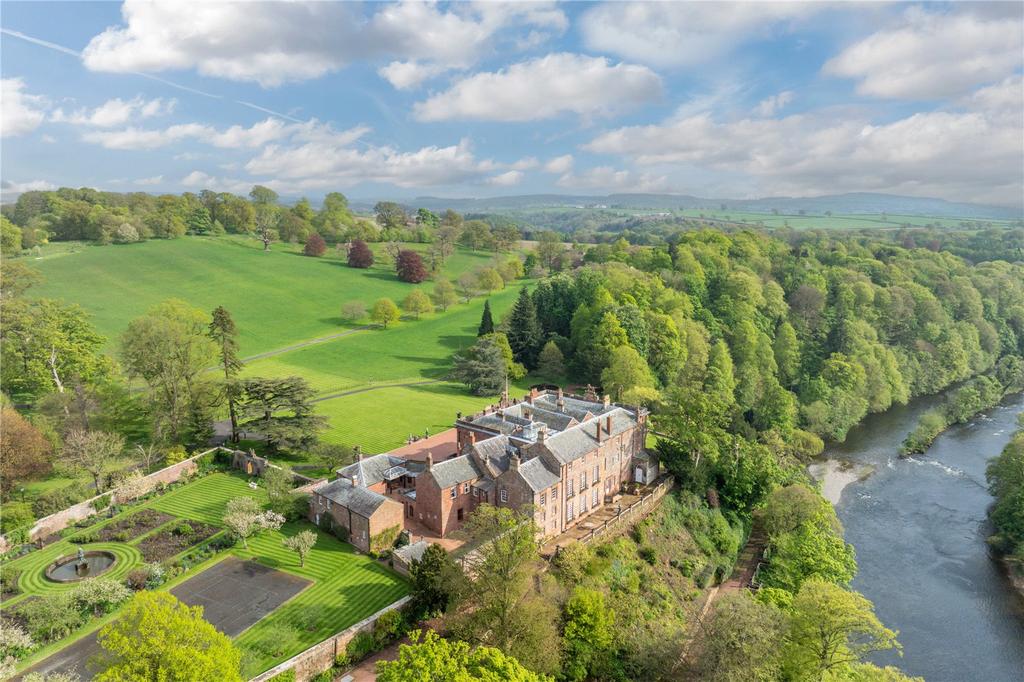
In 1605, Lord William Howard, third son of the 4th Duke of Norfolk, bought part of the Corby estate, followed by the remainder in 1624 for his second son, Francis. The estate remained in the Howard family until 1994, when it was acquired by the Ballyedmond family of Northern Ireland.

Built around the core of a medieval tower house, Corby Castle was remodelled for Henry Howard between 1812 and 1814 by the Scottish architect Peter Nicholson, who gave the building its present rectangular plan and neo-Classical façades.
The imposing, 30,364sq ft house stands on high ground to the north of the estate, overlooking the banks and cliffs of the River Eden and surrounded by magnificent gardens and pleasure grounds, including a wildly romantic riverside Green Walk developed by Thomas Howard between 1709 and 1739.

The castle grounds, highlights of which include a spectacular cascade, a charming tempietto, grottos and sculptures, were much admired by Thomas’s fellow lovers of romantic landscapes, among them the watercolourist William Gilpin, writer Sir Walter Scott and the renowned Scottish garden designer John Claudius Loudon, who described them as ‘singularly grand and picturesque’.
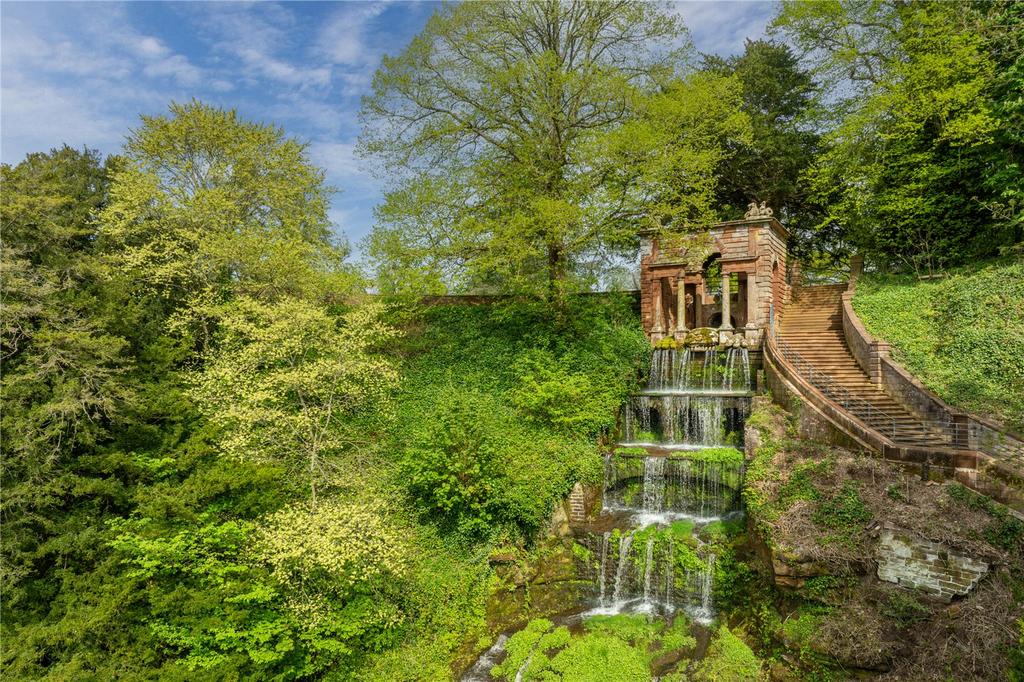
Impeccably renovated and modernised during the tenure of the current owners, Corby Castle is entered through imposing, Grade I-listed gates flanked by red-sandstone walls.
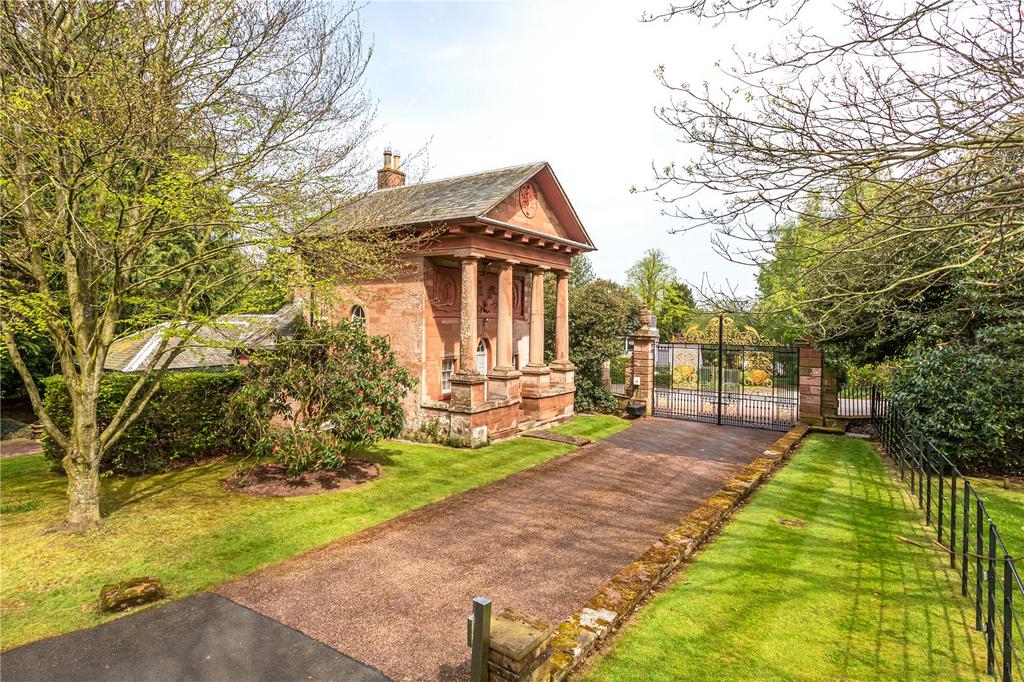
A Greek Doric porch, surmounted by the Howard family’s signature Corby lion, leads through panelled wooden doors to the dramatic Grecian East Hall and the principal reception rooms, each of which has its own unique cornicing and is in immaculate condition — something that is rarely found in a Grade I-listed mansion of this age and provenance, selling agent Alex Lawson observes.

The elegant drawing room leads through arched glass doors into the dual-aspect Summer Room and adjoins the Library, a glorious room with beautifully fitted ornate bookshelves, silk wallpaper and three south-facing, full-length windows that flood the room with natural light; they also provide access to the southern terrace overlooking the Eden.

The marble-floored West Hall, reached via steps from the west terrace, leads into the impressive Great Hall, currently used as a formal dining room. To the north of the castle, a modern family kitchen leads through to the Morning Room, the Shoot Room and a small family room.
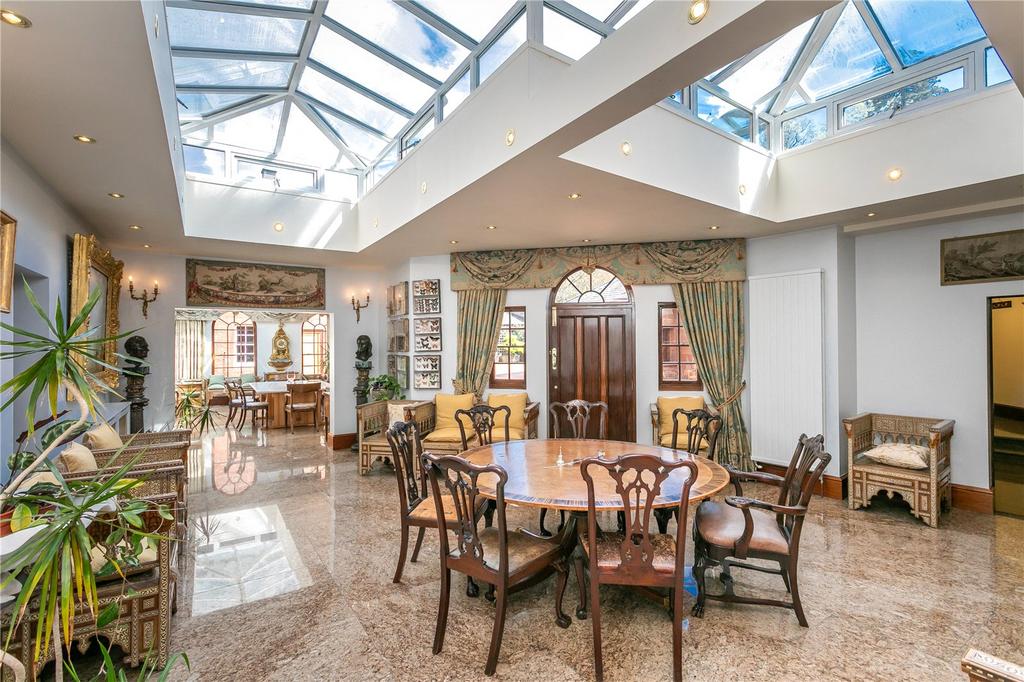
Beyond the handsome main staircase is the first floor and the colourful Picture Gallery, another versatile entertaining space, off which are located two sumptuous principal bedroom suites and three other suites.
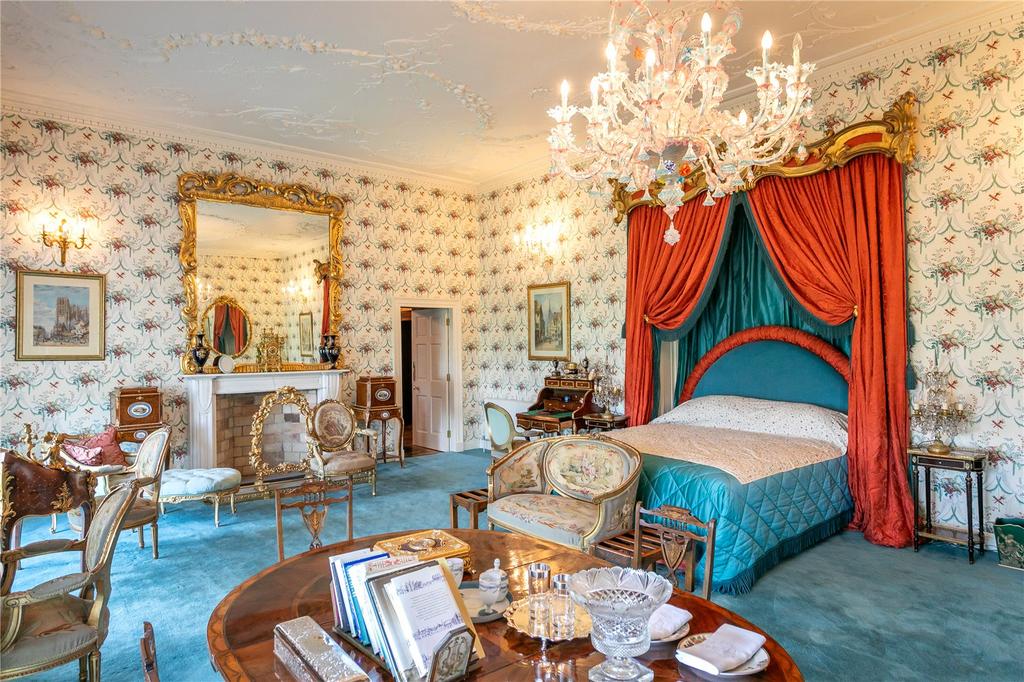
The second floor, a mirror-image of the first, houses the Games Room, three further suites and a study, with additional bedroom suites on each half-landing. As one might expect, Corby boasts myriad staff and service rooms, including a staff wing with a commercial kitchen designed to cope well with large house parties.
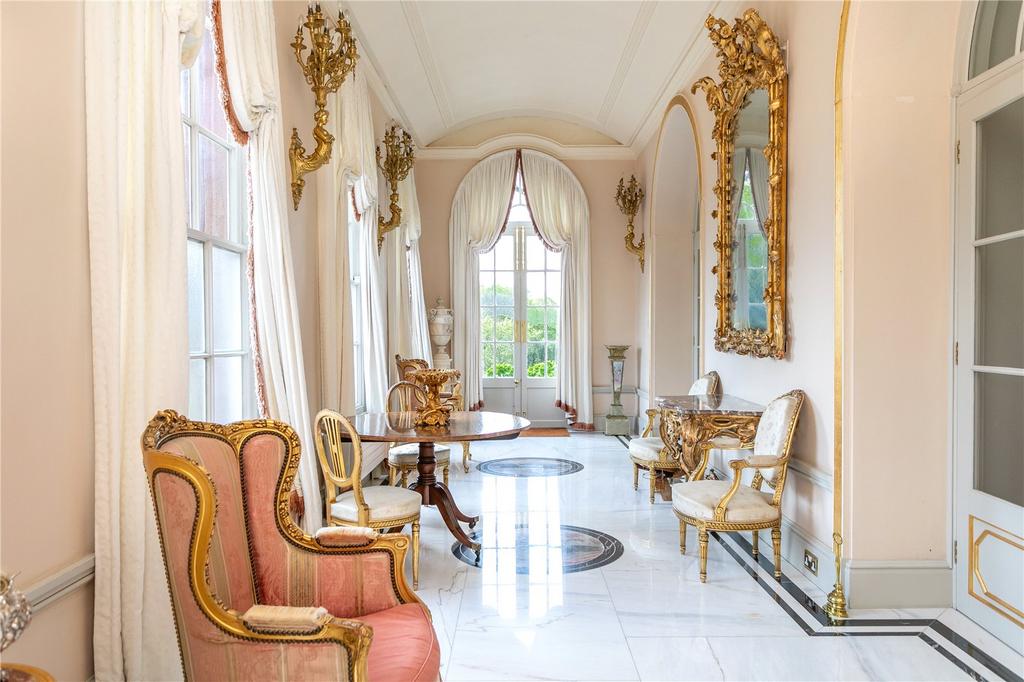
The main focus of sport at Corby Castle is its world-class pheasant shooting, thanks to an ongoing programme of woodland management, strategically placed game covers and efficient vermin control by its team of gamekeepers. The topography of the ground, with its warm, south-facing slopes, extensive woodland cover and steep cliff faces, has created 17 challenging drives that test the finest shots. A number of ponds to the east of the estate attract good numbers of duck, with salmon and trout fishing on the River Eden.

In addition to its traditional parkland, the Corby Castle estate comprises 387 acres of ring-fenced arable farmland, which surrounds the house and pleasure grounds to the south.
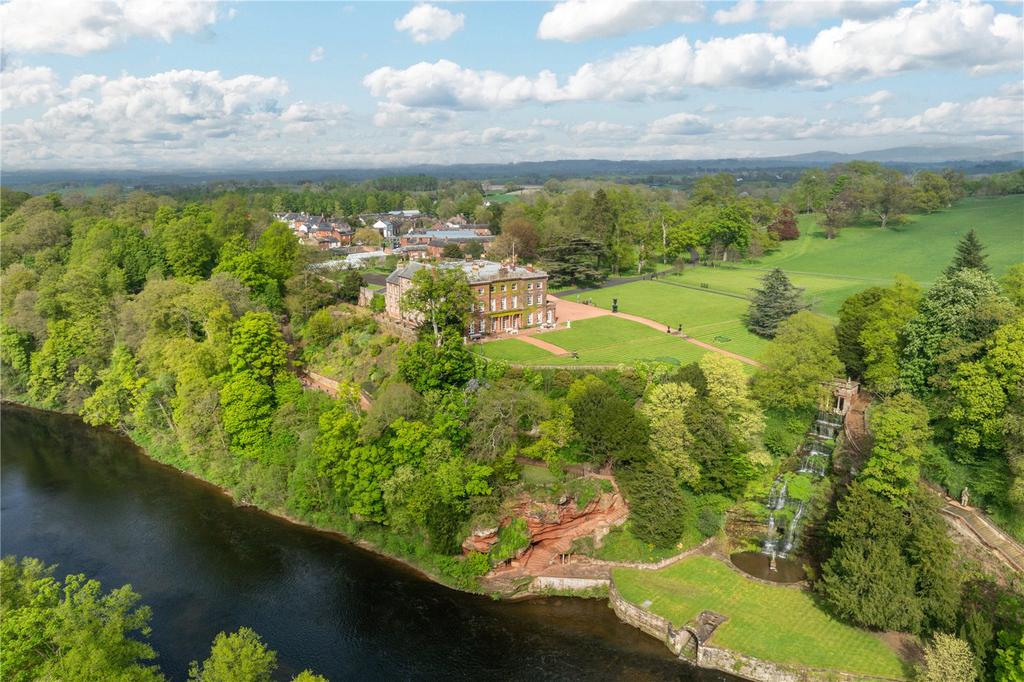
The estate also offers an extensive, well-managed property portfolio, including not only a traditional estate courtyard and two farmsteads, but also a substantial collection of 17 high-quality secondary houses and cottages capable of providing extra guest or staff accommodation or diversified revenue streams.
Corby Castle is for sale at £15 million via Savills — see more details and pictures.





